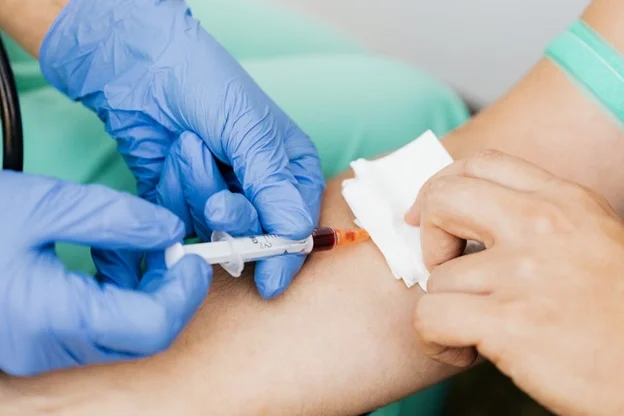EKG and phlebotomy skills are increasingly important in healthcare. So if you want to know what it takes to read heartbeats or draw blood like a pro, how these roles contribute to patient care, and where they can lead you career-wise, stick around.
Essential EKG Techniques and Tools
To diagnose heart issues, EKG knowledge and the right equipment are required. In particular, being capable of operating an EKG machine is a must.
You’ll need to:
- Understand electrode placement
- Read EKG waveforms effectively
- Maintain equipment regularly
These skills form the backbone of this role, ensuring accurate readings every time. Also, understanding potential challenges can set you apart from others in this field. When you’ve mastered these elements, you’re better prepared to help identify serious cardiac conditions quickly and efficiently.
Phlebotomy Fundamentals
There are more than 137,000 phlebotomists registered nationally, and if you want to join them then you need to grasp the basics. Mastering venipuncture is key.
To do this:
- Practice hand-eye coordination
- Ensure patient comfort and safety
- Use sterile techniques to prevent infections
You will be better off taking a dedicated diploma in this area if you want to pursue a career as a Phlebotomist since you’ll get the first-hand training and tutelage that’s so valuable for quick progress. It will make processes like handling blood samples with care second nature, and ensure accurate lab results, which are critical for diagnosis.
Beyond drawing blood, it’s about making each interaction seamless and professional. By honing these skills, you become an essential part of the healthcare team.
EKG and Phlebotomy in Patient Care
As mentioned, EKG and phlebotomy professionals are instrumental in many patient care scenarios. Their work ensures accurate diagnostics and better treatment outcomes.
They must:
- Monitor heart health efficiently
- Provide timely blood analysis
- Support physicians with precise data
By working together, these disciplines enhance the overall healthcare experience. Quick, reliable information helps doctors make informed decisions faster.
So when you’re in these roles, your contributions significantly impact patient recovery journeys. Even at a time when AI tools are transforming healthcare communication, in-person teamwork of this type is still relevant.
Career Path Options
With EKG and phlebotomy skills, diverse career paths open up in healthcare. It’s a case of choosing what matches your experience and appeals to you on a personal level.
For instance, you might:
- Work as an EKG technician in hospitals
- Join a clinic’s diagnostic team
- Specialize further in cardiology
If you prefer working with blood samples, consider roles like lab technician or blood bank assistant. For those keen on advancement, these roles serve as stepping stones to more specialized fields such as cardiovascular technology or laboratory management.
Gaining experience and pursuing additional certifications means you can expand your options significantly. These foundational skills are valuable assets that offer numerous growth opportunities in the medical field.
Final Thoughts
Essentially, understanding EKG and phlebotomy basics really can unlock a wide array of opportunities in healthcare. Whether it’s through monitoring heart health or drawing blood, these skills are a necessary part of accurate diagnostics and effective treatment.
As you refine your expertise, new career paths become available, offering both professional growth and personal satisfaction. These roles combine technical proficiency with making meaningful contributions to patient care every day.









